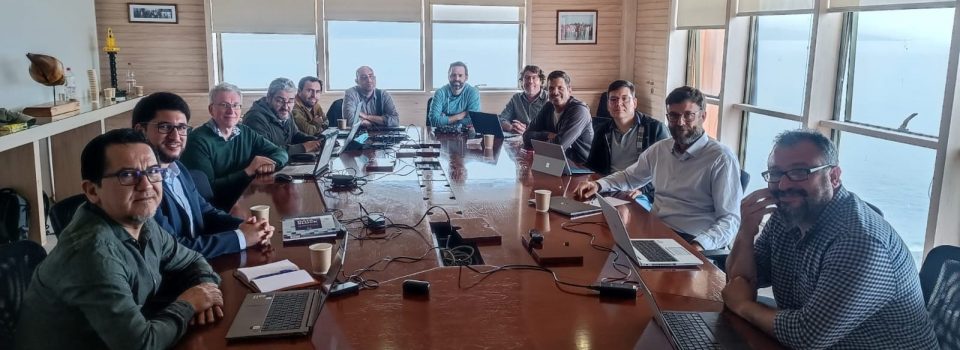Atlantic squid Population dynamics is similar to that of cuttlefish.
December 19th, 2022Ignacio Payá, IFOP researcher, stands out after participating in an international workshop on Illex argentinus.
IFOP researcher Ignacio Payá (https://www.researchgate.net/profile/Ignacio-Paya) participated in the first international scientific workshop on south-west Atlantic squid, Illex argentinus, (Conference: First International Scientific Workshop for the Argentine Shortfin Squid – capes) that was held in November 2022 at P. Universidad Católica de Chile Marine Research Coastal Station (http://ecim.bio.puc.cl).
The workshop was organized by the Applied Ecology and Sustainability Center (CAPES) and aimed to ensure formal establishment of science-based regional management for this fishery.
Renowned scientists in biology and squid stock assessment from South America and Europe participated. The basic biology, population dynamics and abundance assessment methods of squid in FAO area 41 were reviewed.
Payá presented a review of his experience as a member of the cuttlefish (Dosidicus gigas) working group at the South Pacific Regional Fisheries Management Organization (RFMO-PS, www.sprfmo.int), examining implementation times and progress made. for cuttlefish. The researcher highlighted that, although the size of the squid (approx. 30 cm ML) is much smaller than that of chilean cuttlefish (approx. 70 cm ML), these populations have several common characteristics such as their short life (1-2 years), high productivity, extensive trophic and reproductive migrations, and a complex structure with local populations and different size groups (phenotypes) whose abundance is related to environmental conditions. They also share the large Chinese fleet made up of around 300 jigging boats that each year fish for squid in international waters and then migrate to the Pacific Ocean through Magellan Strait for cuttlefish fishing in RFMO area. -. The operation of this large fleet in the Atlantic is still unregulated, so it is necessary to establish a formal regional management based on fisheries science.
Press related links:
